From 28–30 November 2018, I was in Monaco to attend Day One, a new annual event that had its debut at the Grimaldi Forum. This was my last business trip of the year, and one that I was highly looking forward, having worked with the Monaco Convention Bureau this year and attending several of their events in Germany, including joining them at IMEX Frankfurt, and a networking event in Cologne. It has been a very insightful experience to learn about their latest campaigns, venue openings, renovations and future plans.
One piece of news which particularly stood out for me was the new focus on digital transformation. At the press conference at IMEX Frankfurt, Sandrine Camia, Director of the Monaco Convention Bureau, informed the international press about the opening of a new incubator and accelerator for start-ups, the Monacotech. With the current strength of Monaco with respect to health, finance and sustainable development, this incubator will also help to breach out to other sectors, while at the same time supporting existent sectors and broadening economic diversity.
Another important example of how Monaco fosters innovation and gains a competitive edge in technology and digital transformation is by attracting events such as Day One. This event brought together decision-makers to create a vision and action plan for the new economy. The most talented, ambitious and disruptive businesses came to Monaco for two days and made things happen.
The idea to create and bring the Day One event to Monaco came less than two years ago from the French tech pioneer and entrepreneur Denis Jacquet. After I interviewed Denis and learnt about the story behind his vision for Day One, it was fascinating and a big honour to be there in person.

My arrival in Monaco for Day One event
I travelled to Monaco on 28 November, one day prior to the official event opening. I took an early flight from Frankfurt to Nice and had a helicopter transfer to Monaco with Monacair. From the Monaco Heliport, I was then shuttle transferred directly to my hotel, Columbus Monte-Carlo. I stayed in this hotel in 2014 and since then, it has been renovated, with the entire concept of the hotel being redone, and an investment of over 15 million Euros. It is still a 3-star property, but the new design and renovation of the 181 rooms, and addition of the new Mediterranean restaurant, Tavolo, as well as a bar, position the hotel now as a trendy boutique and lifestyle hotel. Another new addition to the hotel are the 12 new apartments for prolonged stays. The hotel is now in the last phase of renovation, and a small gym, for example, will open at the beginning of next year.
Columbus Monte Carlo – affordable luxury
When I interviewed Gerard Arazo Riera, Director of Sales & Marketing at the Columbus Monte-Carlo Hotel at IMEX Frankfurt, he spoke enthusiastically about the neighbourhood where the hotel is located, Fontvieille. This beautiful area, with small bars and restaurants, the port of Fontvieille and even a jogging trail, is the ‘local neighbourhood’ where many Monégasque people live, located away from the popular touristic centre. Despite not being ‘central’, in Monaco most venues are easily accessible by foot or public transport, and it only took me approximately 30 minutes to walk to the centre. On both conference days, I took bus number 6 to the Grimaldi Forum.
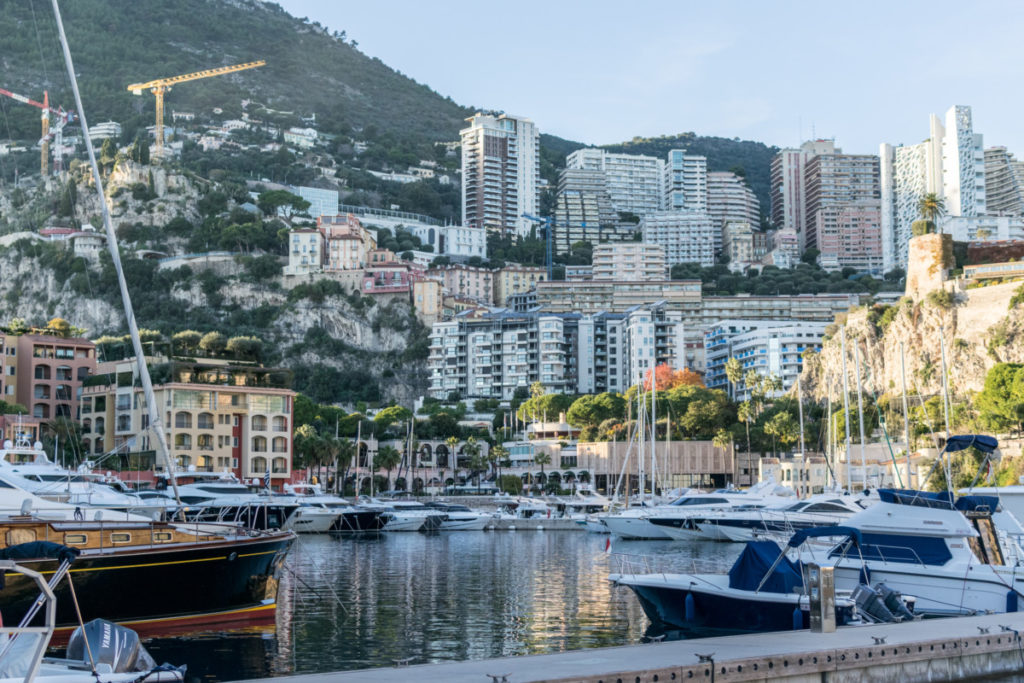
The reality of travelling for business is that travellers barely get time to spend in their hotel room. Late arrivals and early departures are day-to-day occurrences. The Columbus Monte-Carlo offers the comfort, simplicity and good internet connection that a business traveller appreciates and needs.
My bright, spacious and modern Deluxe Room had a view over the Princess Grace Rose Garden and the sea and was very comfortable and welcoming. One minor disadvantage being on this side of the hotel was hearing the helicopters arrive and depart, due to the hotel’s proximity to the heliport; however, that situation did not detract from the overall positive experience of staying in this hotel.
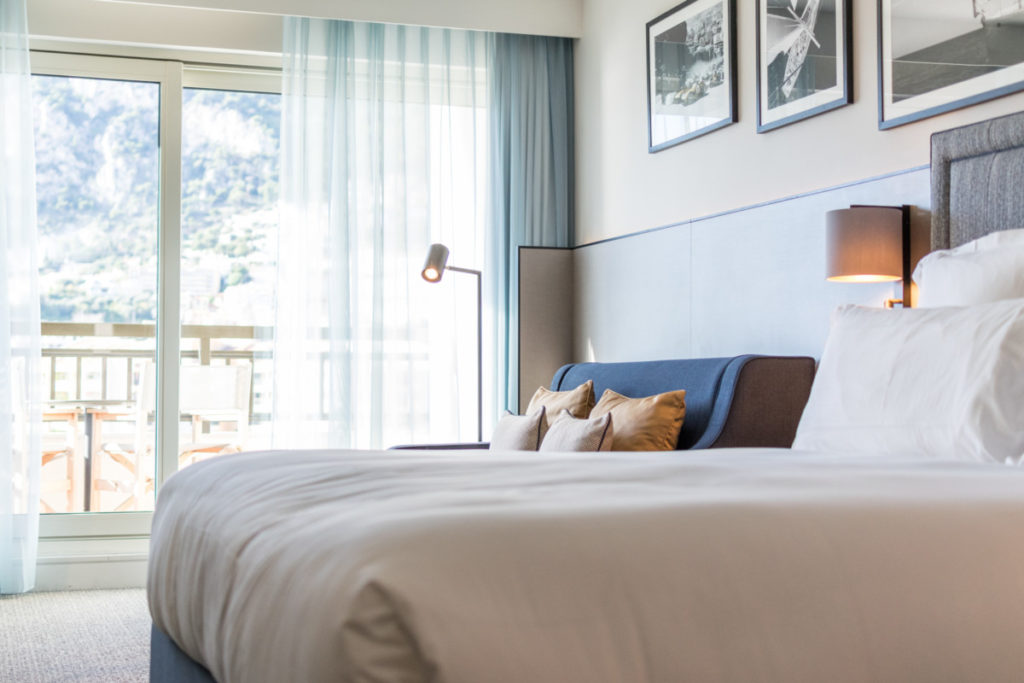
I had a hotel tour and also saw other room categories. For example, the Riviera Suites are spacious open-plan rooms where it is also possible to organise small events, providing a great alternative to standard meeting rooms.
Grimaldi Forum Monaco – all event planners’ needs under one roof
I had visited Grimaldi Forum previously, in 2014, and saw an empty space. Now, however, attending such a high-profile event, and observing the venue ‘dressed up’ for the occasion, was highly impressive.
The following spaces at the Grimaldi Forum were used: Salle des Princes auditorium for the conference, the Foyer for coffee breaks and lunch and the Guelfe and Génois spaces for evening networking reception and dinner.
Event organisers, Raising Stones Events, did the right thing by maintaining everything all under one roof. This approach made the logistics significantly more effective and was highly convenient for me. The programme on the first day finished at 6.30pm, and I stayed in the Foyer chatting with other delegates; I then went up to the Guelfe and Génois rooms for the evening reception that began at 7.30pm. There were various buffet stations with an impressive choice of local and seasonal products.
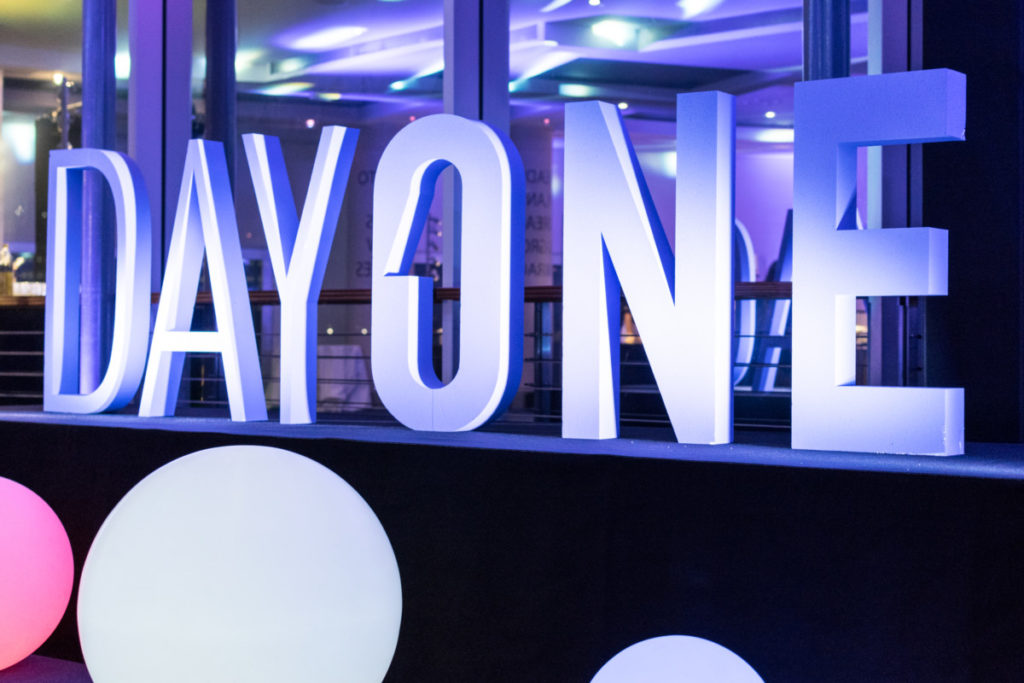
On the first day, the event finished at approximately 10.00 pm. Initially, I planned to take the public bus back to the hotel, but then at the station I saw that the last bus had already left at 9.36pm. Here, the organisers also thought one step ahead and a shuttle was waiting outside the venue to transfer all delegates back to their hotels (I was not at first aware of this shuttle bus and therefore initially went to the bus stop).
The only downside for me was being indoors all day, not seeing any daylight; something that you could regret when visiting such a beautiful destination as Monaco. However, I was prepared for this situation; travelling for business has its up and downs, and this is one of them. Therefore, arriving one day earlier and exploring the destination on my own was a big plus. Otherwise, it would have been a shame not to see as much of Monaco as I would have liked.
Programme of Day One
The event opened with an alarming video regarding our daily habit of being on our mobile phones all the time, missing out on establishing real connections with our friends, family and the outside world. It was frightening to say the least, and a ‘wake-up call’ to ‘disconnect to reconnect.’ Afterwards, we had a surprise meditation session. I liked the surprise element here because it created anticipation and willingness to try something new, having never done any meditation myself.
Then, the founder Denis Jacquet took the stage to welcome everyone and officially open Day One.
All sessions were in 10–20-minute slots, to ensure that everything was short and dynamic. The event was bi-lingual, in French and English, and simultaneous translation was provided. I loved the idea of a fully bi-lingual event; on the panel, speakers could communicate in their language of choice. If speakers can choose which language they wish to present in and the audience can have it translated, it significantly enhances the experience for everyone and gives speakers the confidence to excel at their subject matter.
Sessions were delivered by CEOs of large multinationals, representatives from ‘unicorn’ start-ups, small businesses, non-profit organisations and academics; young students were also on stage and were able to ask the experienced CEOs their questions. This last format, involving members of the younger generation challenging industry veterans, was one aspect of the sessions I found particularly impressive.

Government of Monaco supporting Day One
When Denis Jacquet was looking for the most appropriate destination to host Day One, by chance he discussed his vision with Jean Castellini, Minister of Finance and Economy of Monaco. Both men happened to have studied at the same cohort and business school programme. Jean Castellini introduced Denis to the Monaco Convention Bureau; Denis welcomed the conference with supportive feedback to go ahead, further introducing him to local actors for subsequent event planning. Additionally, the event received ‘patronage’ from Albert II, Prince of Monaco. This patronage provides event organisers with official approval of support and permission to use this status on event documentation and communication. Albert II also attended one session in the afternoon on the first day.
Jean Castellini opened Day One on the second day and welcomed all delegates, delivering an anecdote regarding the process of bringing the event to Monaco. He shared three words that summarise and give context to how Monaco aims to meet today’s global challenges of digitalisation: connectivity, ambition and humanity. He concluded with stating that the ‘Monaco of tomorrow is building today, together with people like you and events like Day One.’
In the afternoon, Frédéric Genta—Country Chief Digital Officer for the Principality of Monaco—gave an insightful talk entitled ‘What is a digital city’. He discussed the process of digitalising a country and how Monaco is getting ready for the future.
Brief overview of topics and sessions
There were many interesting topics covered, but I have selected a few here that are most related to my day-to-day business or involved a product or service that I have personally used and therefore am familiar with. Some were also inspiring, and I learnt something new. I liked having only one conference stream, and I therefore stayed to listen to all talks; I was eventually able to solve the puzzle of the various ideas, bringing them all together. All topics were effectively built on each other, providing me with a steep learning curve.
I particularly enjoyed the following sessions:
1. Impact Investing, by Elizabeth Corley, Former CEO at Allianz Global Investors
2. Breathing Space: Hack my Session: Are You Well Protected? By Ilan Graicer, Cyber Security Specialist at Tel Aviv University Cyber Research Center
3. Challenge Lab: Providing Health and Support to Independent Workers from the Digital Economy by Alexandre Molla, General Manager Switzerland at Uber, and Mayya Layt, Head of Driver Growth for France, Switzerland & Austria at Uber
4. How do we Accommodate Change and Inclusion? Digital Transformation: Human Evolution, not Technological Revolution, by Jean-Dominique Senard, CEO at Michelin
5. Tech for Territories, by Emmanuel Marill, CEO France at Airbnb and Philippe Dorge, Deputy Director General at Le Groupe La Poste
6. Zero Emissions City Logistics, by François-Régis Le Tourneau, Standard & Prospective Supply Chain Director L’Oréal.
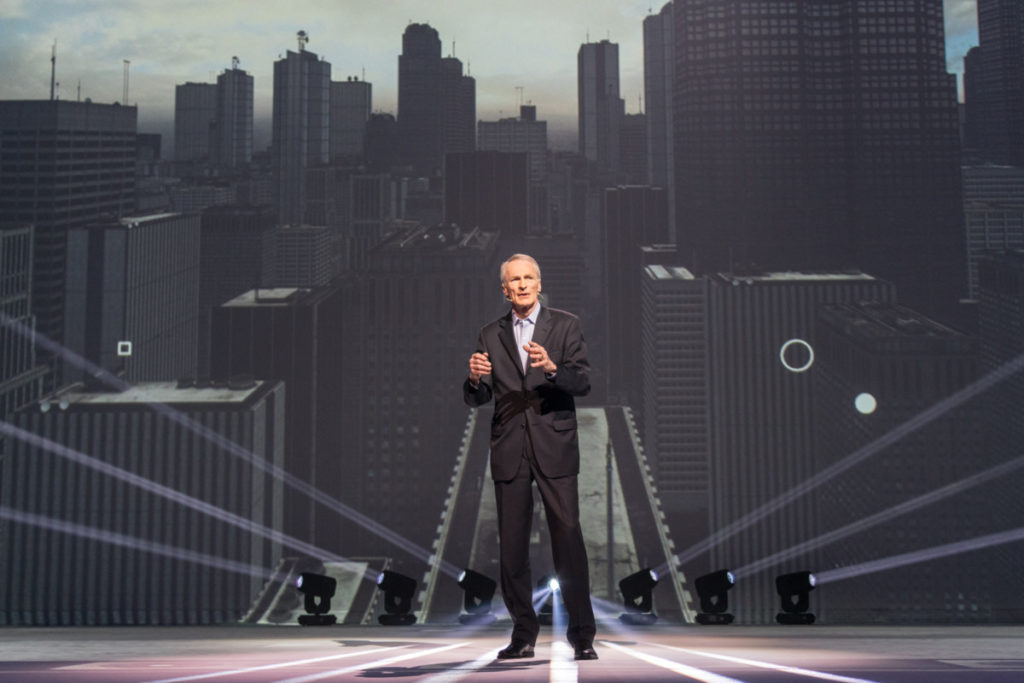
For the first edition of Day One, the organisers did incredibly well. As Denis Jacquet mentioned in our previous interview, organising an event is similar to building a luxury watch, requiring precision and attention to detail. And it lived up to its expectations. I consider that each attendee was able to take away one or two aspects that they can immediately implement in their organisations; such aspects are highly individual to each one of us who attended. For me, an area that I will look further to exploring and improving upon is education and knowledge transfer within the events industry, and specifically micro-learning, a term repeated several times during the two days of the event. Businesses today need to re-skill and up-skill their work force to ensure that they can stay competitive in the near future.
I would like to conclude with a highly insightful talk given by Chocqueel-Mangan, Chief Strategy Officer at Pearson, that touched on the challenges we face across many industries in terms of the tasks we want to automate and the ones that will stay ‘human’. The good news is that ‘decision-making and judgement, fluency of ideas, creativity, problem solving, how to instruct and transfer knowledge will stay human. People need to learn how to learn and that will keep them ahead of the changing jobs.’



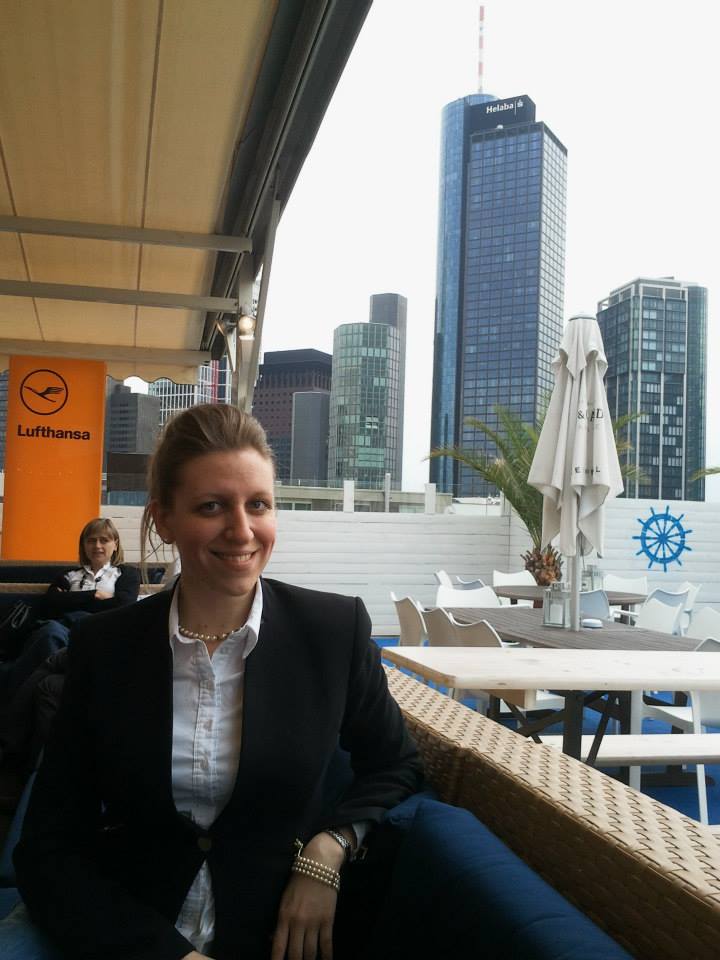
No Comments